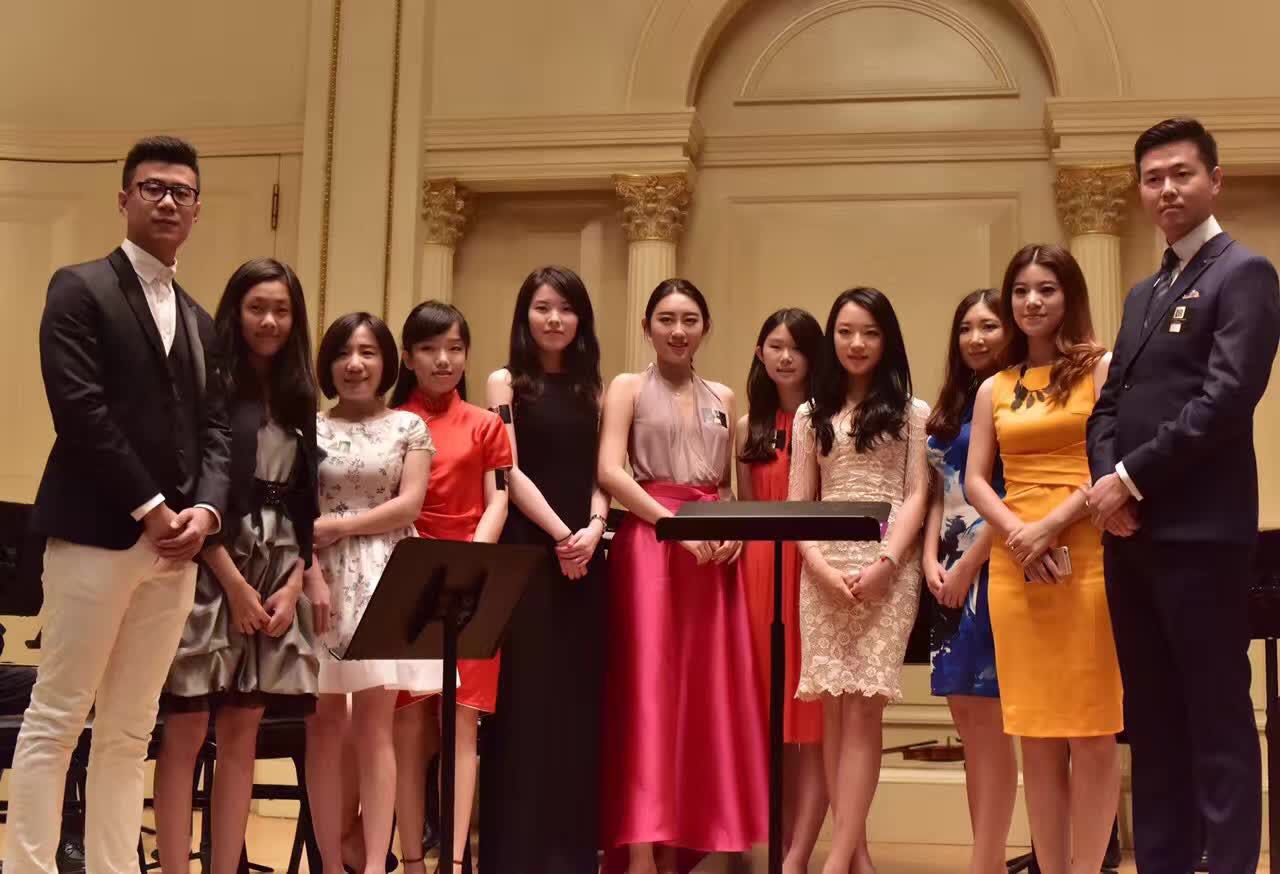Millennials of U.S.-China
A group of young Chinese in the U.S. have started an organization to promote mutual understanding in an age of intolerance.

On a weekday evening in September 2016, Apple (Jiani) Liu 刘佳妮 walked out of McKinsey & Company’s headquarters in Manhattan. Wearing a black skirt and high heels, she had just finished a long day of stock trading and asset allocation, but her work wasn’t over. She was on her way to meet a possible partner for the nonprofit organization she started in March.

Liu had founded Millennials of U.S.-China as a way to connect high-achieving American and Chinese millennials.
“A lot of American students believe that the students in China are all brainwashed by the government,” said Liu, who came to the U.S. in 2011 as a freshman at Brown University. “American students tend to refer nearly everything about China to government influence.”
Soon after Liu arrived on campus, some of her American peers confronted her about A Bite of China, a CCTV-produced documentary about Chinese food. One of her classmates challenged Liu by calling the film a “brainwashing” tool by the Chinese government.
“But it was just a documentary about food!” Liu replied.
“Nobody would think about national unity when they look at all these tasty local cuisines from Lanzhou, for example,” she said. “People would just think that ‘these Lanzhou hand-pulled noodles’ look so delicious.”
Liu was diplomatic. After watching several episodes of the documentary with her American classmate, he agreed there was little overt thought control in the show. Recounting the experience at a coffee shop in Manhattan’s Koreatown, Liu raised her eyebrows and asked, “How many misconceptions can you have to think a food documentary is a means for thought control?”
Experiences like this prompted Liu to dedicate her time to fostering mutual understanding.
Liu says that as one of the first Chinese students admitted at Brown University, she founded Brown China Summit, where she invited leaders in the fields of Sino-American relations, economics, education, and the arts to visit the university. She also shared her thoughts in written posts on Weibo, the Chinese equivalent of Twitter, about American values.
“Happiness means a lot to American youth,” observed Liu. She said that American millennials prioritize pursuing their passions, while many Chinese students consider making money to be at the top of their list. “This probably results from our different economic basis, but I’d like to tell the Chinese youth that happiness matters when our economy grows.”
Liu graduated from Brown University last year with a double major in applied mathematics/economics and East Asian studies. After several college internships on Wall Street, she signed on full time to start her career at McKinsey. But she still felt a sense of responsibility to bridge the gap between the millennials in both countries.

Inspired by the Committee of 100, a membership organization focused on the Chinese-American community and Sino-American relations, Liu founded the “youth” committee of 100 — Millennials of U.S.-China. The organization has gathered over 30 members from various backgrounds, including finance, media, technology, and fashion.
To raise the committee’s visibility, Liu began publishing interviews with famous Chinese public figures and celebrities. Written in Chinese, her articles on the fashion photographer Chen Man and the renowned pianist Lang Lang have attracted over 560,000 views on Weibo.
Liu would like to focus on education next. Her team is planning a forum looking at education in China’s underresourced urban and rural areas, drawing inspiration from American organizations such as Teach for America.
“We’d like to bring together Chinese and American organizations and see what they can learn from each other,” said Liu. “We want to shed more light on the kids who are not receiving proper education.”
Xiaobo Lu, a professor of political science at Columbia University, said that Chinese millennials, or the “post-1990” generation, grew up in a much more affluent society, and often they don’t have a strong sense of history.
“The United States and China cooperated in World War II, then had almost 30 years of isolation. Since the 1970s and 1980s, there was a time of breaking the ice,” Lu explained. He also said that China’s youth should not take today’s hard-fought current U.S.-China relations for granted.
“It’s so crucial for the younger generation [of both countries] to have a better understanding of each other and this relationship,” Lu added.
With the rise of social media, millennials have better access to information than ever before. “My expectation is that the group [Millennials of U.S.-China] should do more,” Liu stated, “through social media, through more exchanges face to face, to really bring the young people together.”
Professor Lu struck a more cautious note. By ensuring that millennials don’t neglect their own country’s history, he said, “I hope they can learn what they’ve known and what they’ve yet to know rather than just claim that they know everything.”
Disclosure: Liu Jiani is on The China Project’s advisory board.





